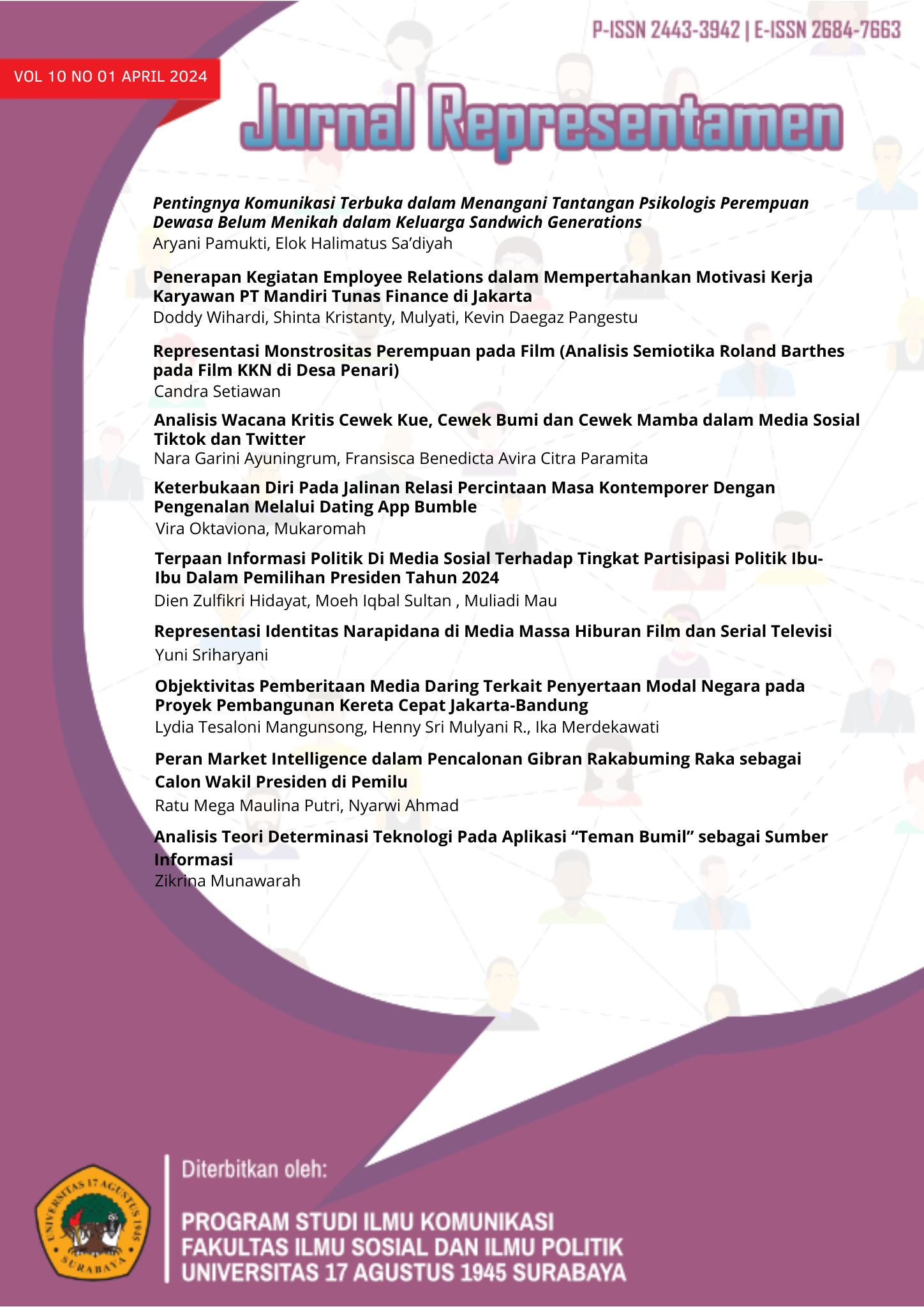Terpaan Informasi Politik Di Media Sosial Terhadap Tingkat Partisipasi Politik Ibu-Ibu Dalam Pemilihan Presiden Tahun 2024
DOI:
https://doi.org/10.30996/representamen.v10i01.10705Abstract
This research aims to analyze the level of exposure to political information on social media among female voters in the 2024 Indonesian Presidential candidate election in the city of Makassar. This research uses quantitative methods through survey techniques. Data collection techniques include distributing questionnaires and conducting literature studies in the form of library studies, scientific journals, book references, etc. related to the research topic. The population in the study was female voters specifically for mother voters in the city of Makassar with a total of 445,100 heads of families. The research sample used the Probability Sampling technique with the Cluster Sampling method. Determining the sample size used the Isaac and Michael table with an error rate of 5%, resulting in a sample of 348 people. The data analysis techniques used in this research are validity testing, reliability testing and simple linear regression testing. After the collected data was analyzed using the SPSS version 25 application. The results of this research showed that the level of exposure to political information on social media was 60.1.%.
Keywords: Information Exposure, Political Information, Social Media, Presidential Election, Makassar City
Downloads
Downloads
Published
Issue
Section
License
Authors whose manuscript is published will approve the following provisions:
The right to publication of all journal material published on the jurnal representamen website is held by the editorial board with the author's knowledge (moral rights remain the property of the author).
The formal legal provisions for access to digital articles of this electronic journal are subject to the terms of the Creative Commons Attribution-ShareAlike (CC BY-SA) license, which means Jurnal Representamen reserves the right to store, modify the format, administer in database, maintain and publish articles without requesting permission from the Author as long as it keeps the Author's name as the owner of Copyright.
Printed and electronic published manuscripts are open access for educational, research and library purposes. In addition to these objectives, the editorial board shall not be liable for violations of copyright law.











